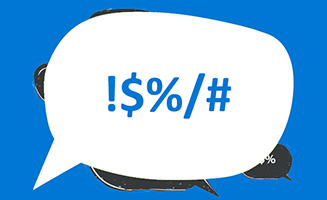
GCED Basic Search Form
Quick Search
You are here
News

Education Ministers from all over the world on Tuesday attended a Global Minister’s Conference held at the initiative of UN Secretary-General António Guterres and UNESCO Director-General Audrey Azoulay to reinforce the struggle against online and offline hate speech.
Against a background of high anxiety caused by the COVID-19 pandemic, there has been an increase in hate speech and people’s instinctive quest for scapegoats has resulted in a sharpr rise in prejudice, stereotypes and discrimination. The UN and UNESCO have called on States to take action to curb this harmful phenomenon.
The Global Ministers Conference, the first of its kind, organized by UNESCO and co-chaired by President Hage Geingob of Namibia has given rise to decisions on common actions at all levels of education, prioritizing media and information literacy, teacher training and public awareness raising about digital citizenship.
"This hatred is not new. But what has changed more recently is the influence and magnitude of social media platforms, which have become an echo chamber that amplifies. The legal response is essential, but it is not enough. We must also mobilize education, because it is through education that we develop critical thinking and deconstruct prejudices."
-- Audrey Azoulay, UNESCO Director-General
UNESCO and partners’ work to address hate speech spans multiple areas, notably:
- Addressing hate speech on social media developed to monitor the existence, spread and impact of online hate speech, as well as assess capacities to counter it.
- Media information and literacy curriculum for teachers to help young people assess the relevance and reliability of information.
- Prevention of antisemitism through education, as well as teaching about the Holocaust and genocides, including training for policy-makers and teacher trainers around the world.
- Preventing violent extremism by providing support to youth so they can engage against hateful and dangerous ideologies, and by training and guiding educators.
Organized in partnership with the United Nations Office on Genocide Prevention and the Responsibility to Protect, the Ministers Conference follows on the work of the multi-stakeholder forum organized by UNESCO early this month with the participation of governments, civil society organizations, human rights experts, as well as tech and social media companies including Facebook, YouTube and TikTok.
Underpinned by the United Nations’ human rights and free speech-based Strategy and Plan of Action on Hate Speech, the Ministers Conference specifically focused on education in the struggle against hate speech, its deeply rooted causes and driving forces.
Strengthening educational responses to build the resilience of learners to the rhetoric of exclusion and hate also lies at the core of the Education 2030 Agenda, and more specifically Target 4.7 of Sustainable Development Goal 4 (SDG 4) on the social, moral and humanistic aims of education.
For more information and resources: https://en.unesco.org/news/addressing-hate-speech-through-education-global-education-ministers-conference
Press contact: Clare O’Hagan: c.o-hagan@unesco.org +33 145681729
URL:
